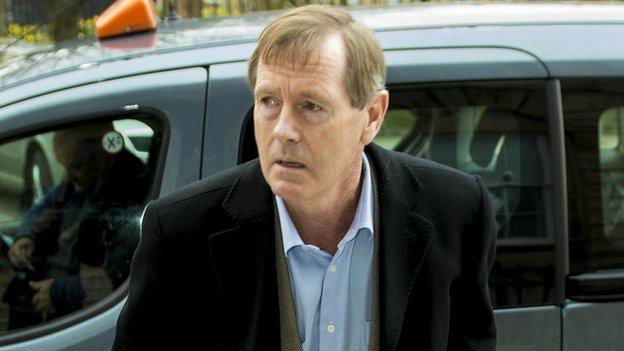Rangers remain a club beset by the turmoil of conflict
- Published
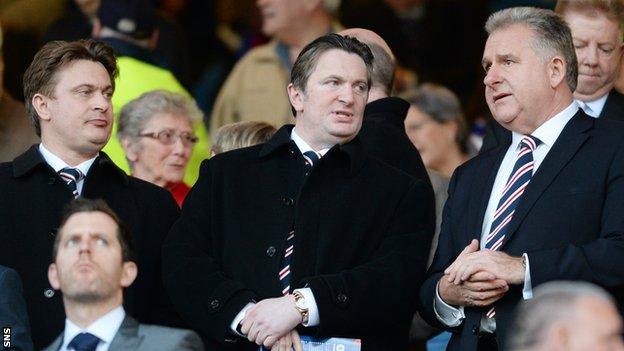
Rangers directors James Easdale and Sandy Easdale with chief executive Graham Wallace
The end of the season has not caused the turmoil to cease at Ibrox. There can be no sense of calm when the majority of supporters still seem so agitated about the state of the club that they have yet to commit to renewing their season tickets.
Talks between some directors and members of the Union of Fans group last week suggested that progress might be possible, but the two sides took to communicating by public statements again at the weekend. That seemed an ominous regression.
Disaffection cannot be ushered away with words alone. The chief executive, Graham Wallace, was prepared to raise the possibility of offering the fans a legally-binding undertaking not to use Ibrox as security for borrowing or to sale and leaseback the stadium. UoF in return asked for a similar guarantee over Murray Park, which the non-executive director, Norman Crighton, and the shareholder, Sandy Easdale, were, according to the supporters group, initially opposed to.
Agreement was eventually reached for the directors to return to the rest of the plc board - Philip Nash, James Easdale and the chairman, David Somers - to discuss the matter.
Since then, positions of conflict have become entrenched again. The board, in a statement released on Saturday evening, said that they "won't be seeking to effect a sale and leaseback or grant security over Ibrox" during the next 12 months. No pledge was made about Murray Park.
That omission alone was enough to prompt alarm among supporters, not least because Leeds United suffered a similar fate as they tried to rebuild following financial collapse. The training ground was sold first and the stadium eventually followed - and that has proved a hindrance to more recent attempts to rescue the English club from further troubles.
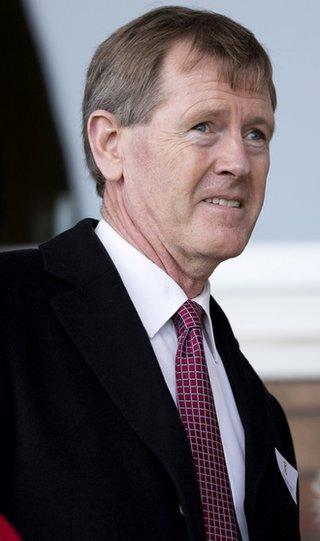
Former Rangers director Dave King wants to reinvest in the Ibrox club
Finance is the critical issue at Ibrox. Season ticket renewals are thought to have now risen slightly above 10,000. The deadline has passed, but public sales won't commence until late June.
In the meantime, requests to move seats will be actioned, which in effect means that season ticket holders still have time to renew. Ahead of the public sale last year, more than 31,000 fans had renewed and total sales later topped 35,000. Without that kind of financial support again, the board will need to seek external sources of funding.
Some positions have shifted, though, and it is possible to detect, in the noise that gathers around Ibrox, that Wallace is an increasingly isolated figure. UoF made a pointed reference to Sandy Easdale in their statement - and the shareholders whose proxies he holds - "calling the shots in the boardroom". Easdale himself is a minor shareholder, and chairman of the Rangers Football Club board, but not a member of the plc board.
He does, though, hold the proxies for around 26% of the shareholders of Rangers International Football Club plc. The state of the relationship between Easdale and Wallace is now a significant and interesting side-plot.
Even so, the fundamental issue remains unchanged. How do Rangers finance the next 12 months?
Season ticket renewals, coupled with some cost-cutting measures, might have been enough to see the club through this next campaign. Now, additional funding is required and there are only three likely sources: equity funding through a share issue, borrowing against Murray Park, or the sale and leaseback of Murray Park.
The latter two options will anger supporters and could hamper the club's ability to restore itself to its former status.
There are 43 million unissued shares and a pre-emptive offering - to existing shareholders only - could raise around £9m, with the share price currently 28.75p and the offering normally held at a discount. That alone would only buy a short period of time and it also assumes that the existing major shareholders will all participate.
If they do not, the rump of unsold shares would need to be bought by other shareholders, which would raise their holdings and so increase the size of their financial exposure to a business that is in a fragile state. Rights to participate can also be acquired by non-shareholders.
At the meeting with UoF last week, the directors insisted that all but one of the major institutional shareholders would participate. Others firmly believe that this is not the case.
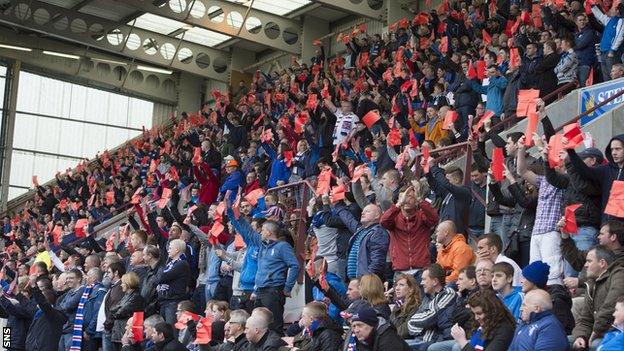
Rangers supporters have held protests against the current board of directors
The disaffection between the board and the fans, the questions over the extent of Wallace's authority, the influence of Sandy Easdale, the need for funding and where it will be sourced from, all reflect an ongoing air of disturbance. The outcome is unpredictable.
Former director Dave King remains committed to providing investment, albeit on his own terms and by way of a fresh rights issue. Fans might agitate for a swifter outcome, but King has been adamant about his intentions.
Rangers are never far from a state of crisis. Solutions might seem obvious - King buying out current shareholders or the board launching a new share issue that King underwrites - but a conclusion currently remains out of reach.
Positions are still being asserted, but the critical question is perhaps why the involvement of King, who wants to invest, is not currently being facilitated. Substantial funding from King by way of a rights issue would alter the shareholder dynamic, though, since he would effectively be taking control.
In the meantime, dramas involving individuals catch the attention and the finances remain stricken.
- Published18 May 2014
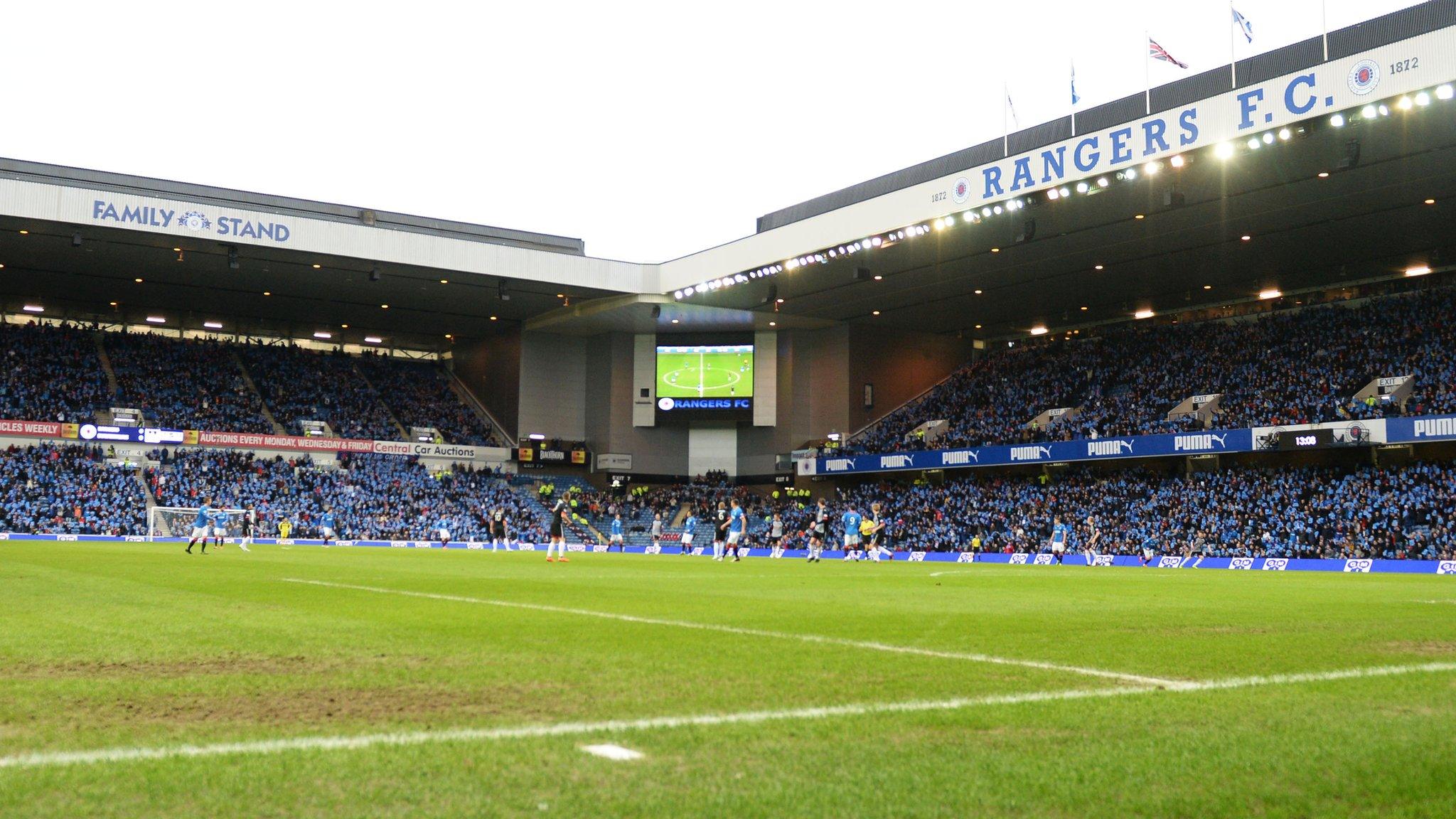
- Published14 May 2014
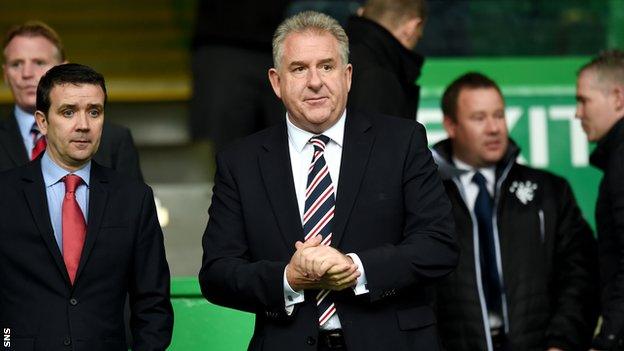
- Published13 May 2014
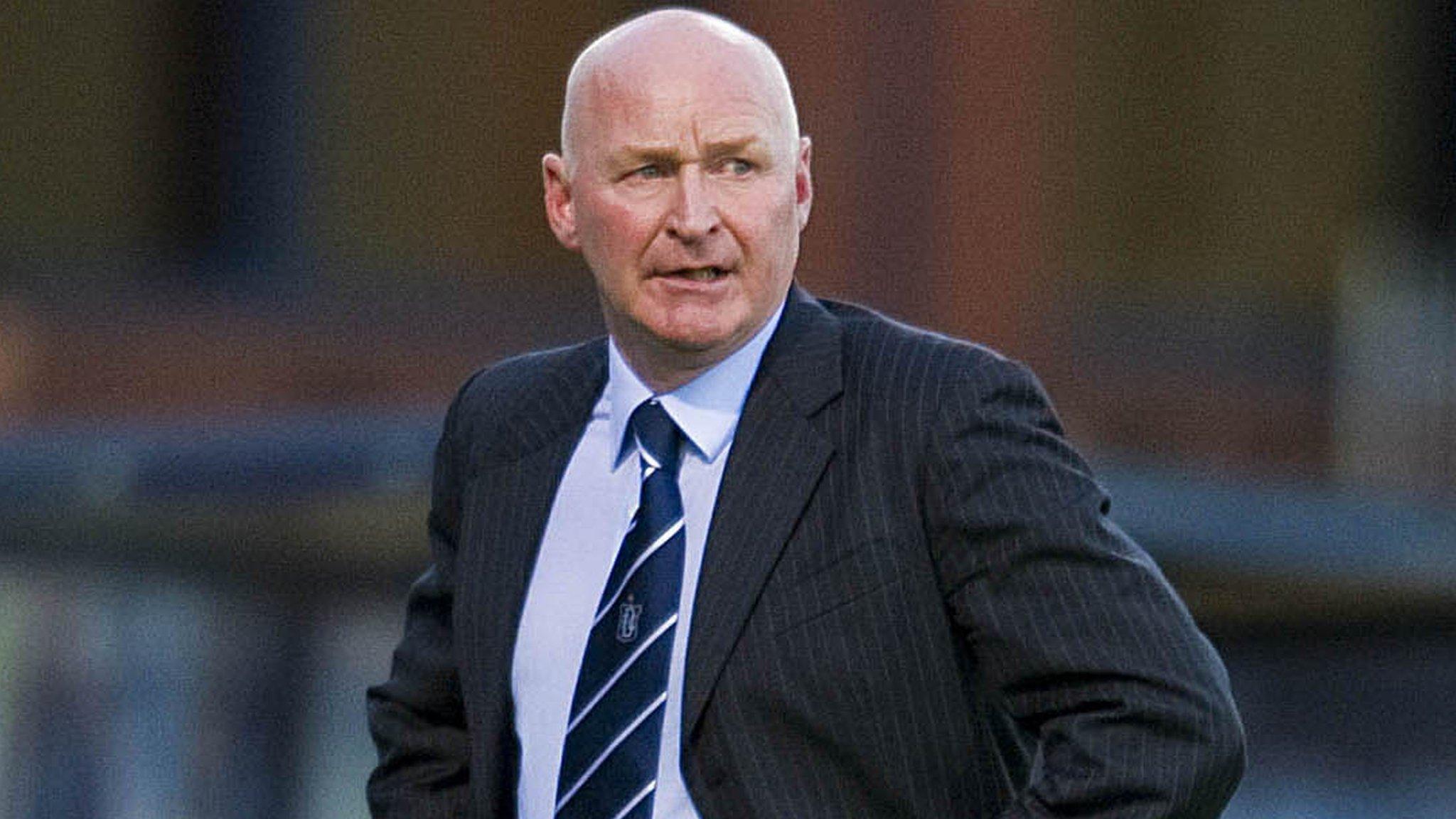
- Published18 March 2014
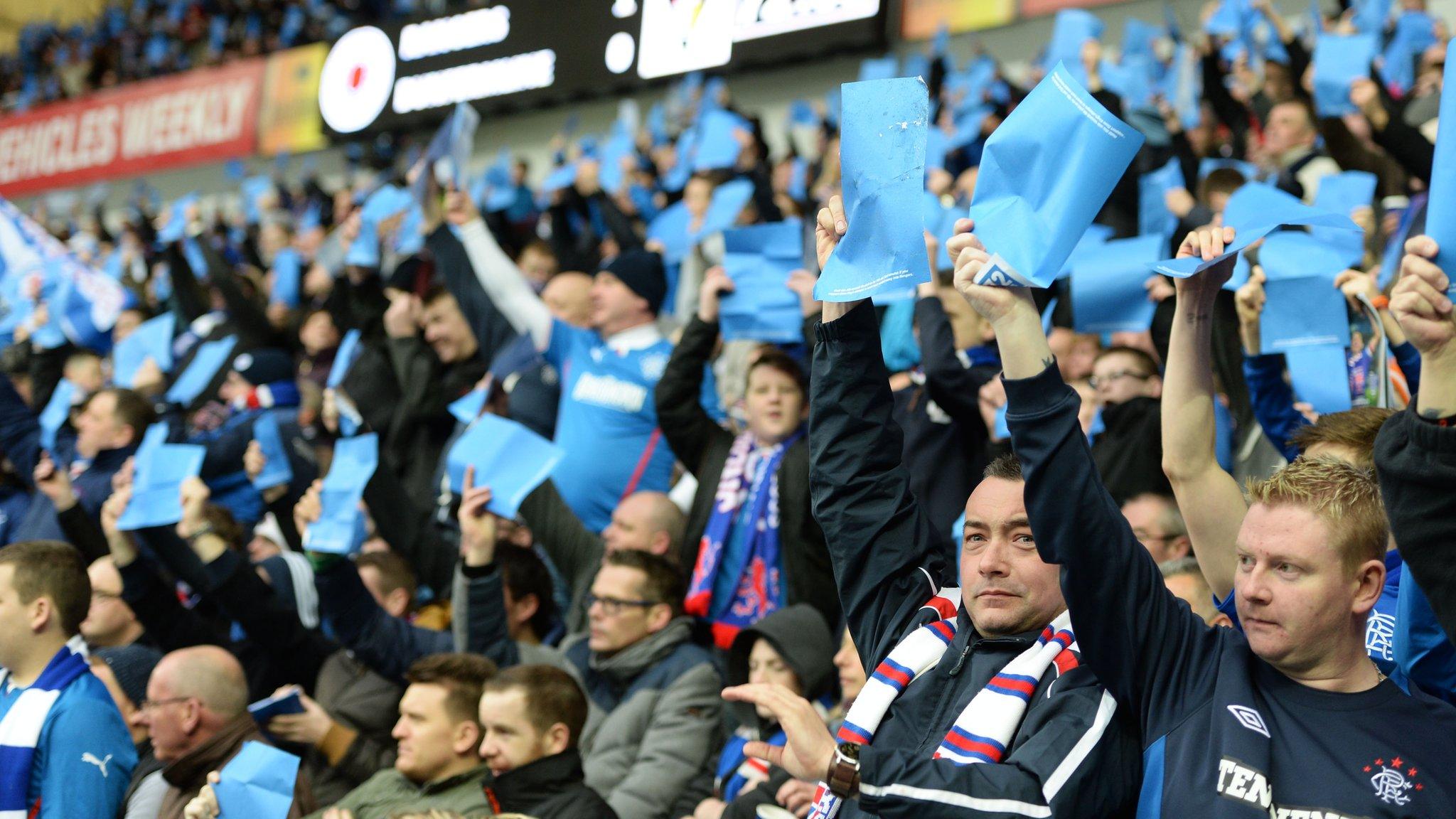
- Published17 March 2014
